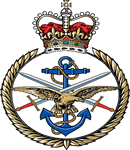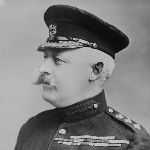Commemorated: | |||
| 1. Memorial: | Glasgow Necropolis | Primus. 38. | |
| 2. Book: | The (1921) Masonic Roll of Honour 1914-1918 | Pg.124 | |
| 3. Memorial: | The (1940) Scroll - WW1 Roll of Honour | 29D GQS | |
Awards & Titles: | Knight Commander of The Most Honourable Order of the Bath Companion of The Most Distinguished Order of St. Michael & St. George Commander of The Royal Victorian Order | ||
Family :
Son of George Moncrieff Grierson and his wife Allison Lyon Walker. Born at Glasgow.Education & Career :
Glasgow Academy
Service Life:
Campaigns:
- The First World War 1914-1918, World-wide.
| Unit / Ship / Est.: Commanding II Army Corps |
| Action : Natural Causes |
Natural causes is attributed those deaths due to causes that were not directly associated with the war. Included in this are wartime deaths resulting from, for example, theSpanish Influenza pandemic and its associated pneumonia problems and other attributions such as age and exhaustion. It also groups those who through Post Traumatic Stress committed suicide as a result of their experiences.
Colonel (1902).
Major General (1904).
Detail :
GRIERSON, Sir James Moncrieff, Lieutenant General, Officer Commanding II Corps BEF, K.C.B., C.V.O., C.M.G., A.D.C. Following the transfer of the BEF (British Expeditionary Force) to France in August 1914 the concentration was virtually complete by the 20th. However one sad incident marred the progress to the scene of action, namely the death of Lieutenant-General Sir James Grierson, commanding the II Corps, who expired suddenly in the train on the morning of the 17th. It is believed that he suffered a heart attack. Sir John French (Commander of the BEF) asked that Sir Herbert Plumer might take General Grierson's place, but the Secretary of State for War decided to send Sir Horace Smith-Dorrien - a decision that was to cause significant problems within the high command until Smith-Dorrien was eventually (and arguably wrongly) sacked in 1915. Smith-Dorrien and Sir John French did not get along and against French's wishes Smith-Dorrien decided to stand and fight at Le Cateau during the retreat from Mons - a skillfully managed defensive battle that arguably prevented the destruction of II Corps. Would Grierson have fought such a stopping action? We cannot know, but certainly it is one of the great 'what ifs' of the Great War. Grierson was a member of UBIQUE LODGE NO 1789. Ubique Lodge took its origins from the Royal Artillery whose motto is 'Ubique' - the meaning is 'everywhere'. Those seeking 'Masonic conspiracies' will find comfort that French, Haig (Commander I Corps) and Grierson were Freemasons and Smith-Dorrien was not. However the conspiracy theory falls when we see that the Secretary of State for War who appointed Smith-Dorrien was Lord Kitchener, one of the best known Freemasons. The truth is that simple human failings (jealousy, intriguing, and stupidity) created the problems between French and Smith-Dorrien - not some Masonic conspiracy. Sources; Official History Military Operations France and Belgium 1914 Vol I
Masonic :
| Type | Lodge Name and No. | Province/District : |
|---|---|---|
| Mother : | Ubique No. 1789 E.C. | London |
Initiated | Passed | Raised |
14th August 1893 | 13th November 1893 | 12th February 1894 |
Source :
The project globally acknowledges the following as sources of information for research across the whole database:
- The Commonwealth War Graves Commission
- The (UK) National Archives
- Ancestry.co.uk - Genealogy, Family Trees & Family History online
- ugle.org.uk - The records of the United Grand Lodge of England including the Library and Museum of Freemasonry
Additional Source:
- Founder Researchers : Paul Masters & Mike McCarthy
- Researcher : Bruce Littley

